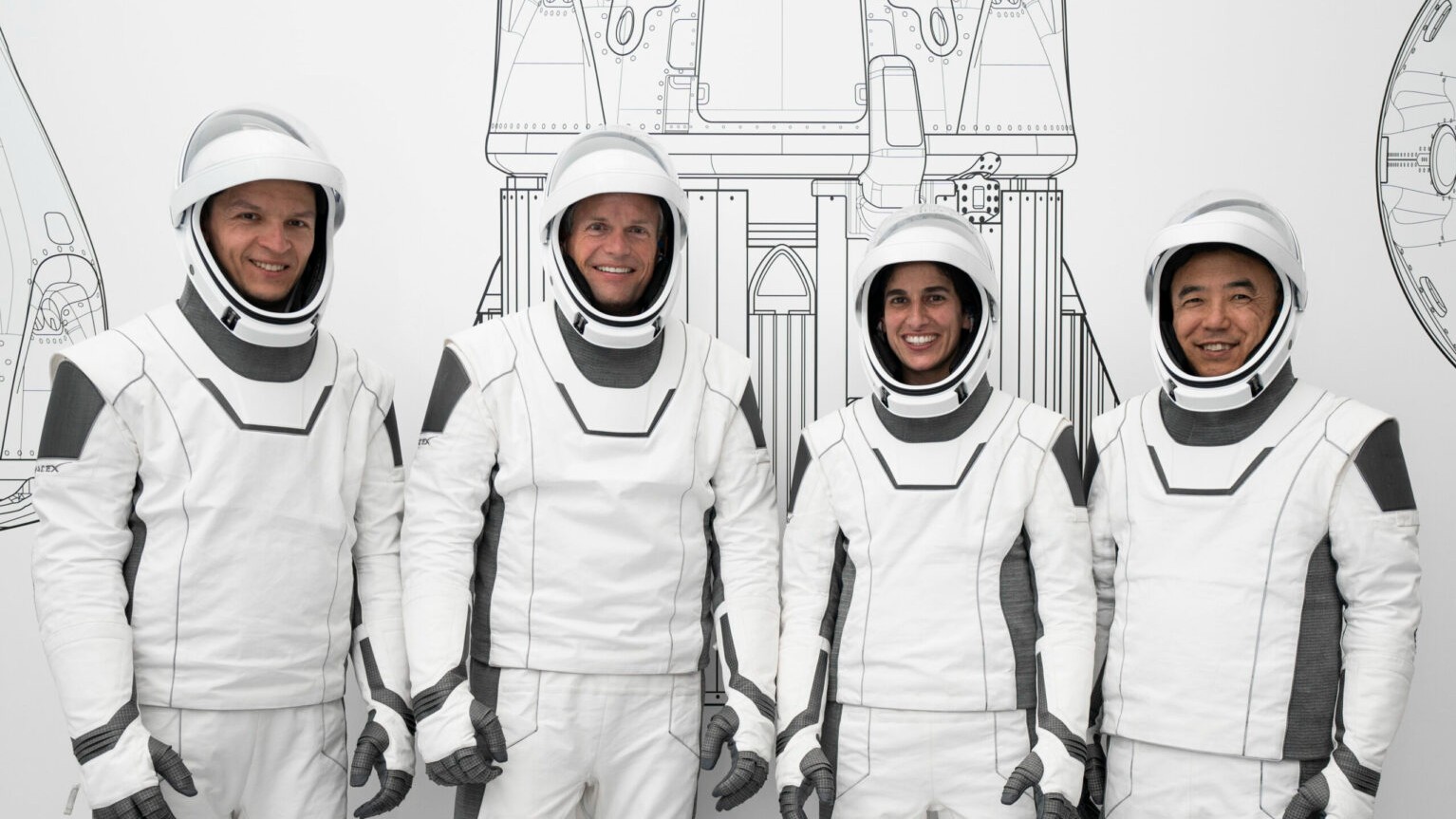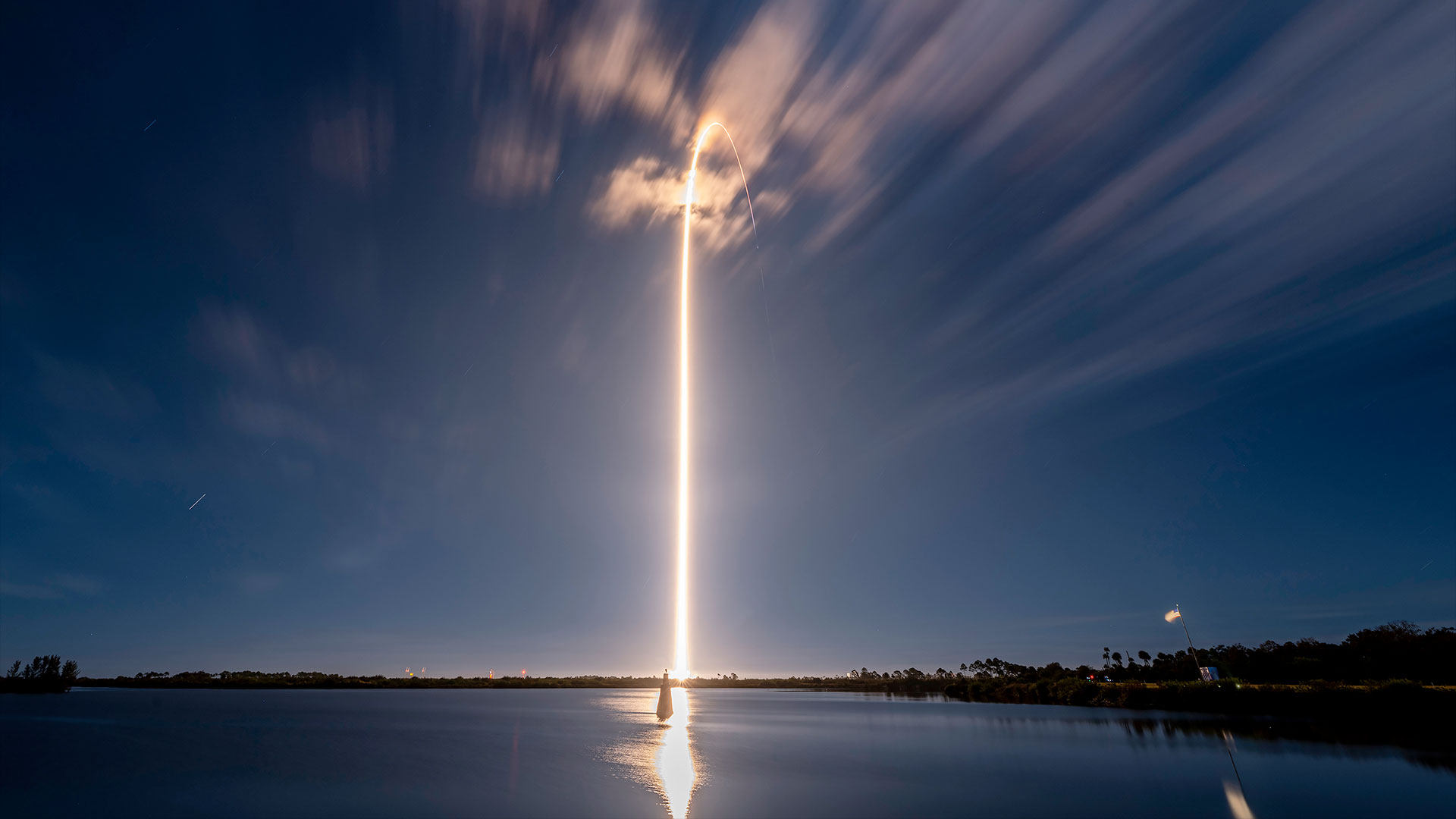SpaceX's Crew-7 astronaut launch delayed to Aug. 17

We'll have to wait two additional days for the launch of SpaceX's next astronaut mission to the International Space Station (ISS) for NASA.
That flight, called Crew-7, had been scheduled to lift off on Aug. 15 atop a Falcon 9 rocket from Pad 39A at NASA's Kennedy Space Center in Florida. But the agency and SpaceX announced today (July 25) that they're now targeting Aug. 17.
The slight slip is a consequence of another SpaceX mission — the planned launch of the Jupiter 3 communications satellite atop a Falcon Heavy rocket on Wednesday night (July 26) from Pad 39A.
"Because of the turnaround of the launch pad from that Falcon 9 Heavy configuration to the configuration we use for crew, we'll adjust the launch date to the 17th of August," Steve Stich, manager of NASA's Commercial Crew Program, said during a news conference today.
Related: SpaceX launches Crew-6 astronaut mission to space station for NASA
Crew-7's liftoff will occur at 6:56 a.m. EDT (1056 GMT) on Aug. 17, Stich added. You can watch the launch live here at Space.com, courtesy of SpaceX.
The mission will send four people — NASA's Jasmin Moghbeli, Andreas Mogensen of the European Space Agency, Japan's Satoshi Furukawa and Russian cosmonaut Konstantin Borisov — to the ISS aboard a SpaceX Dragon capsule named Endurance.
Breaking space news, the latest updates on rocket launches, skywatching events and more!
If all goes according to plan, Endurance will dock with the orbiting lab about 20 hours after launch, around 2:45 a.m. EDT (0645 GMT) on Aug. 18, Stich said today. That arrival will get the wheels turning on the departure of SpaceX's Crew-6 mission, which reached the ISS on March 3. Crew-6 is scheduled to return to Earth on Aug. 25, Stich added.
As its name suggests, Crew-7 will be the seventh operational astronaut mission that SpaceX flies to the orbiting lab for NASA. But it will be the company's 11th crewed flight overall; SpaceX also launched the Demo-2 test mission to the ISS in 2020; the private Inspiration4 flight to Earth orbit in September 2021; and the Ax-1 and Ax-2 missions to the station in April 2022 and May 2023, respectively.
Ax-1 and Ax-2 were organized by the Houston company Axiom Space, which plans to begin operating its own space station in low Earth orbit in the late 2020s.

Michael Wall is a Senior Space Writer with Space.com and joined the team in 2010. He primarily covers exoplanets, spaceflight and military space, but has been known to dabble in the space art beat. His book about the search for alien life, "Out There," was published on Nov. 13, 2018. Before becoming a science writer, Michael worked as a herpetologist and wildlife biologist. He has a Ph.D. in evolutionary biology from the University of Sydney, Australia, a bachelor's degree from the University of Arizona, and a graduate certificate in science writing from the University of California, Santa Cruz. To find out what his latest project is, you can follow Michael on Twitter.
